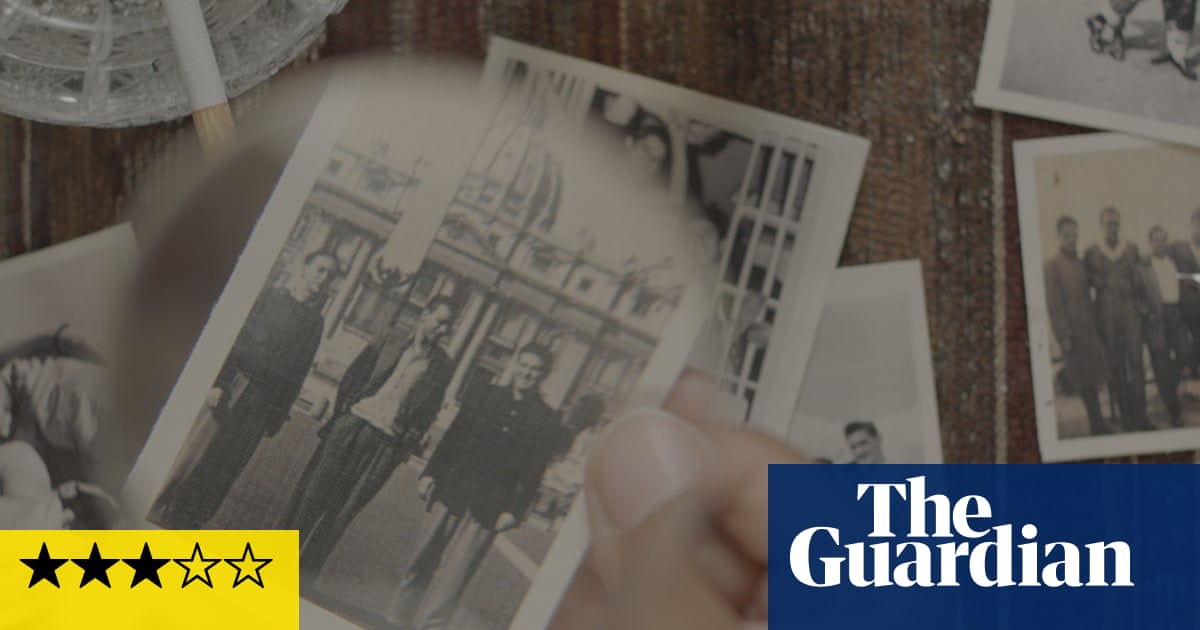
Maybe it was inevitable that the greatest TV show in history should spawn a feature-length prequel that is somehow disappointing: it is watchable but weirdly obtuse with a tricksy narrative reveal that doesn’t add much. The Many Saints of Newark, co-written by the Sopranos’ legendary creator David Chase and directed by Alan Taylor, gives us the childhood of a leader: the teenage Tony Soprano, growing up in New Jersey in the 1960s, specifically the time of the 1967 Newark riots, which caused the “white flight” racism that explains the older Tony having that palatial home way out there in the suburbs that he drives up to in the opening credits each episode.
Young Tony is portrayed with goosebump-inducing deja vu by Michael Gandolfini, son of the late James Gandolfini, who played the role on TV. Tony’s sleepy-eyed sensitivity, his melancholy, his glowering resentment and dangerous hurt feelings are there in embryo. His father, Johnny, is played by Jon Bernthal, and his terrifying mother Livia by Vera Farmiga who gives a superb rendering of Livia’s own haughty mannerisms. But you could spend this entire movie hanging on for the first sign of those all-important petit mal fainting fits that the TV show said originated in Tony’s dad. Is history being rewritten, or misrememberings corrected?
The dramatic focus is now in fact with Tony’s honorary “uncle” Dickie Moltisanti (the name means “many saints”), played by Alessandro Nivola, who is the resident tough guy and Tony’s father figure while Johnny is away in prison, for an incident which Sopranos fans will remember from a flashback sequence in the show. Dickie is the father of Chris Moltisanti (Michael Imperioli) who narrates the movie from beyond the grave. Among these younger versions, Corey Stoll plays the grumpy, bald Corrado “Uncle Junior” Soprano, Billy Magnussen is Paulie “Walnuts” Gualtieri; John Magaro is Silvio Dante; Samson Moeakiola is “Big Pussy” Bonpensiero and Ray Liotta is brought in for a cameo as Chris Moltisanti’s grandfather, thus retaining the Soprano franchise’s connection with Scorsese’s Goodfellas. (Scorsese himself is reportedly unenthused by The Sopranos, perhaps nettled by the episode where he is played by an actor going into a club while Chris Moltisanti cheekily shouts that he liked Kundun – and Scorsese’s name actually remains misspelled in the credits for that TV episode.)
This film shows the family’s growing antagonism to the African American gangs, led by Harold McBrayer (played by Leslie Odom Jr) and how their paranoia and xenophobia is made much worse by the riots, and by their suspicions that the Italian-American heyday in organised crime is coming to an end – but the film doesn’t quite get to grips with the racism theme. Impulsive Dickie Moltisanti uses these riots to cover up his most psychopathic slaying: a pleasingly noir moment, although he has a second crazed murder whose cover-up we aren’t allowed to discover.
The Moltisanti angle is interesting, but frankly not as interesting as Tony’s parents themselves, particularly his mother. We hear about Livia’s psychological problems as well as Tony’s (Tony’s high-school career counsellor wittily echoing the role of a therapist) but Farmiga should surely have been far more important. There is a gloriously dysfunctional moment when, maddened beyond endurance by his wife, Johnny subjects her to a mock-execution in the car, firing his gun just by her ear. But Livia stays utterly unmoved, staring implacably even as her headscarf smokes and Johnny is reduced to muttering: “Don’t give me that look …” And meanwhile, the fateful career-choice of straight-A student Tony hangs in the balance.
Of course, it could be that we will get a MCU-style spate of movies about these people and so the dramatic redundancies and partial frustrations won’t matter as much. There are many sinners here: for the next film, I want a starring role for Tony’s mother – the most terrifying Livia since I, Claudius.
The Many Saints of Newark is released on 22 September in the UK and 1 October in the US.












